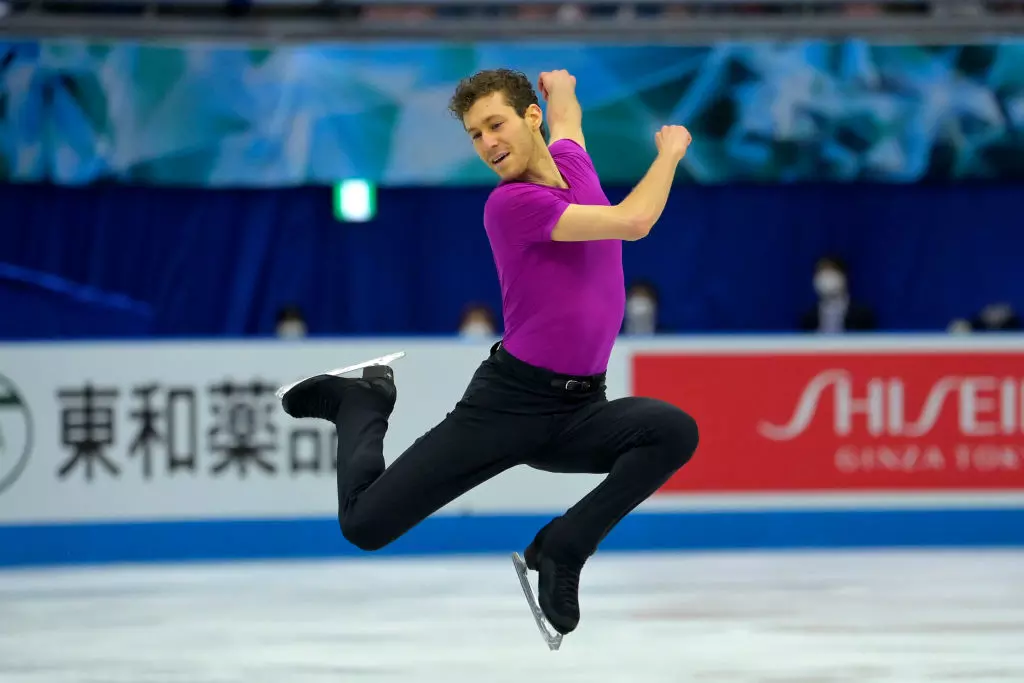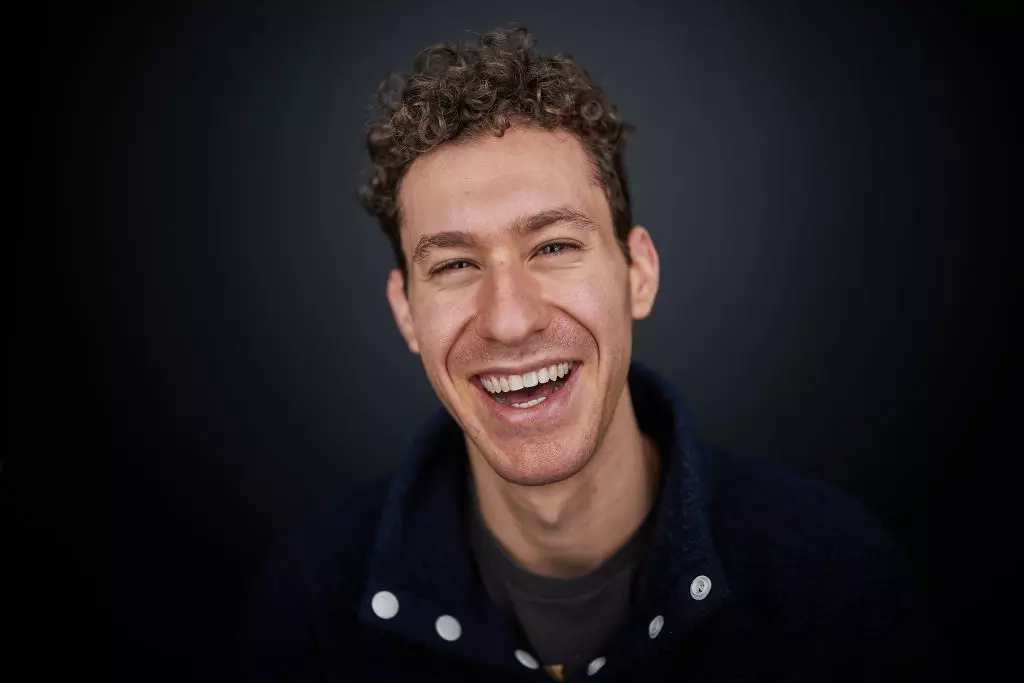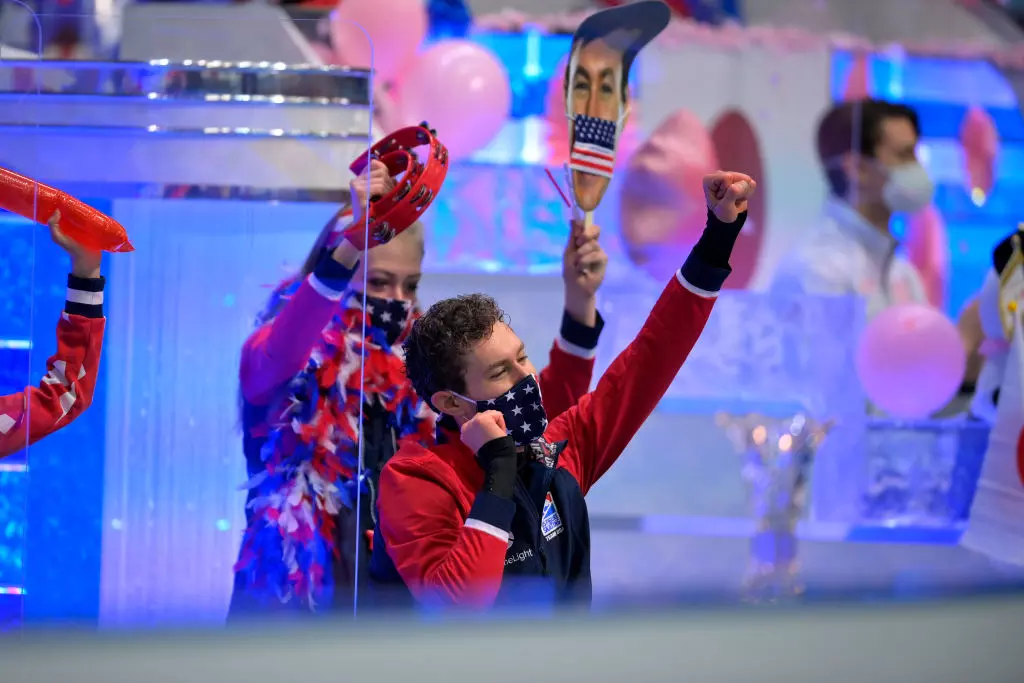Skaters travel the world at a young age and visit many countries. Well, at least they did that before the pandemic hit and hopefully they will be able to do that soon again. They come into contact with different cultures and languages when travelling and meeting fellow skaters from all over the world in competitions. Jason Brown (USA) was 15 years old when he went to Karuizawa, in Japan, in his first ISU Junior Grand Prix of Figure Skating season, in 2010, and he was fascinated right away by the far eastern country.
“I really, I love the language. I love the culture, I love Japan”, Brown shared. “It was my first season on the Junior Grand Prix circuit. I got an event in Japan, and that's when I fell in love with Japan. It was my first experience and since then I really want to be able to somehow connect more with the audience, connect more with the fans here.” So he started to study Japanese. “Everywhere I went they speak English too. And then Japan was the first country that I traveled to where they so appreciate you trying to speak their language and trying to communicate.”
Brown first started studying by himself and later had Japanese classes at school where he learned the Japanese writing styles katakana and hiragana. “I learned kind of which sound each letter made, but I didn't know how to write. Especially in Japanese the stroke order is so important, how you write each letter. In college I learned, actually, how to write it and not just read it”, he said. Then there is also kanji, which is based on traditional Chinese characters and which can be quite intimidating. “To be honest, I can do katakana and hiragana and when it comes to kanji I can recognize maybe 20 to 30”, the skater noted.

Jason Brown (USA) at the ISU World Team Trophy 2021©International Skating Union (ISU)
Japanese is not an easy language to learn. “The hardest part of Japanese for me is the fact that their grammar and their sentence structure is flipped from English”, Brown explained. “In Japanese it's like the verb is at the end. 'I love Japan', is like 'I Japan love'. And obviously as sentences get more complex the whole structure is so different from what I've learned. That part is really difficult because you don't process it the same way. Or when I'm thinking about something in English, I have to think how would I break it down in Japanese and then say it in Japanese. When I hear someone speaking Japanese I definitely have to ask him to slow down a little bit.”

Jason Brown (USA) at the ISU World Figure Skating Championships 2021©International Skating Union (ISU)
Jason’s favorite studying technique are flash cards and he feels it helps him a lot to build the vocabulary. “Obviously from there, then I just love to get the sentence structure and the grammar kind of sorted out, but the more words that I can accumulate and learn through studying, I think the more that I can start at least to put things together to communicate. Even if you don't say it correctly, they understand the gist of what you're talking about.”
At the recent ISU World Team Trophy and other events in Japan that the American attended, he wrote signs in Japanese to thank the audience for their support. “I can't express my gratitude and appreciation enough to the Japanese audience and how much they mean to all the athletes. And so if I can do any sort of kind of communication in Japanese, whatever, even so minor, so minuscule, I think it makes a big impact with the fans”, he pointed out.

Jason Brown (USA) at the ISU World Team Trophy 2021©International Skating Union (ISU)
The 26-year-old has studied in college, on his own and with a tutor. Right now, his time for studying is limited, to his regret. “I want so badly to dedicate more time to studying it and at this point in my life, I don't have that luxury, but hopefully soon.” However, he is continuing to study step by step when his time allows it. “I made this goal that I want to be fluent by 40 so I still have another 14 years”, he said, laughing. Jason has a plan in mind to achieve his goal. “One day I want to live in Japan for a year and really immerse myself in the culture, in the language, get fluent.” He wants to combine this with another dream he has. “I really want to teach English. Growing up, I really wanted to be an elementary school teacher and I just feel that would be the perfect kind of combination of being able to teach elementary school kids but then also become fluent in Japanese.” He would love to teach some skating on the side as well, by the way.